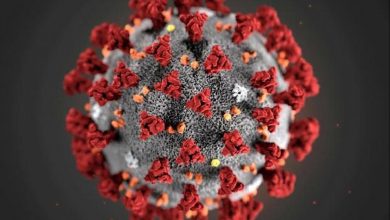How to Identify Addiction in a Loved One

Drug addiction may not often be classified as a disease, but its impacts are as severe as other health complications. If your loved one struggles with drug abuse, some of the effects they are likely to deal with include behavioral problems such as anger, with others displaying deterioration in health. These are, however, just a few other signs described in detail below.
Common Indications of Unhealthy Drug Use
Drastic Behavioural Changes
Individuals struggling with drug addiction tend to manifest drastic behavioral changes such as lying, tendencies to steal, and risky attributes such as reckless partying. Depending on the level of addiction, behavioral concerns will vary from mild, moderate to intense. Some addicts are likely to portray mood swings manifested through extreme joy, depression episodes, and an increased need for privacy.
Health Issues
Drugs such as cocaine and alcohol have been linked to suppressed appetite, with addicts suffering from weight loss due to poor nutrition. Opiates such as oxycodone and morphine also cause gastrointestinal issues, with increased consumption leading to diarrhea that could lead to low nutrient absorption and loss of weight. Contrary to these, marijuana can cause an increase in appetite, with short-term effects manifesting in the form of weight gain. If you notice a loved one with abrupt changes in appetite or weight issues, any of the above drug use may be a likely cause.
Problems at Work or School
While numerous teenagers are prone to occasional outbursts, differentiating regular fits of anger from drug consumption will require you to monitor any abrupt changes. If your teenager has started skipping school or is no longer interested in their school activities, that will be a cause for concern. Disinterest in work or poor performance in projects will also indicate that your loved one may have started consuming drugs with addictions, often causing such a change.
Disheveled Appearance
Looks matter, with changes in external appearance being another indicator of your loved ones’ state of mind. Cleanliness and hygiene often show stability, with changes such as neglected appearances and lack of interest in simple grooming habits being another sign of drug addiction. A drug addict’s top priority will be getting a quick fix to help them get through the day, with hygiene often taking a step back.
In addition to the above changes, read more on some differences that are more visible than others, with additional signs being:
- Red eyes
- Cravings for certain foods at odd hours of the day or night
- Paranoia and anxiety
- Rambling or rapid speech
- Hallucination
- Vomiting after using synthetic cathinones
- Dry mouth
- Dilated pupils
- Impaired judgment
- Heightened taste, visual and auditory perception
- Alcohol odor
- Cannabis smell on clothes or yellow fingertips for cannabis use
- Decreased motor coordination and slow reaction times when performing various physical activities
- Increase in energy and sociability
Seeking Help for Your Loved One
If any of your family members or friends manifest any of the above signs, now is the time to stage an intervention to get them the help they need. A proper intervention should involve a direct conversation with your loved one on the consequences that the addiction is likely to lead to, allowing them to assess the situation without any coercion.
Treatment follows suit, with the parties involved presented with the various recovery methods. Some examples of drug addiction therapies include seeking in-house treatment or outpatient treatment. These will often include medication from professionals, treatment of underlying mental health issues, behavioral counseling, and follow-up.
Getting the proper treatment will ensure that your loved one receives the help they need while allowing them to eliminate any relapses and accidents that could cause safety concerns for other parties.




